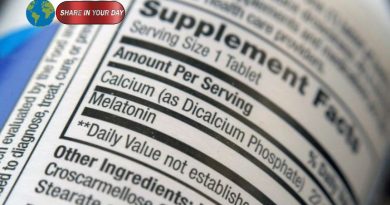Study Reveals Lead Contamination in Popular Protein Powders: Should You Be Concerned?
Study Finds Lead in Popular Protein Powders: Why You Shouldn’t Panic
A recent investigation by Consumer Reports has uncovered concerning levels of lead in a wide variety of protein powders and ready-to-drink shakes. While the findings have raised alarms among some consumers, experts say there is no immediate cause for panic—though caution is advised. The study tested 23 products from popular brands sold both in-store and online, revealing that more than two-thirds of them contain lead levels exceeding the safety threshold recommended for daily intake.

What the Study Found
The investigation, which ran over three months and concluded in late spring, found that several products contained lead levels that were as much as ten times higher than what Consumer Reports considers safe for daily consumption. The nonprofit organization’s tests found particularly high lead levels in plant-based protein powders. On average, these had concentrations of lead nine times higher than powders made with dairy proteins, and twice the level of beef-based powders.
Paris Martineau, a reporter for Consumer Reports, told NPR that while some products contained far more lead than recommended, the risks associated with occasional use remain low. “Even the products with the highest lead levels are far below the concentration needed to cause immediate harm,” Martineau said.
However, Consumer Reports does advise consumers to limit daily consumption of certain powders, especially those from plant-based sources. These products, Martineau added, may present a greater long-term risk due to cumulative lead exposure over time.
The Problem with Lead
Lead is a naturally occurring metal found in various environments, and it’s often absorbed by plants through soil and water. Although no level of lead exposure is considered entirely “safe,” the Consumer Reports study emphasizes that the risks from occasional exposure are generally minimal. It is repeated, long-term exposure at high levels that can pose significant health threats, including cognitive issues, kidney damage, and reproductive problems.
Experts stress that most of the protein powders tested are safe for occasional use. However, the U.S. Food and Drug Administration (FDA) has yet to set enforceable limits for lead contamination in supplements. While there are guidelines—such as interim reference levels for children and women of childbearing age—there are no federal regulations specifically governing the acceptable levels of lead in dietary supplements.
Should Consumers Be Worried?
Despite the concerning results, the study’s authors stress that the majority of protein powders still fall within safe consumption limits when used in moderation. Consumer Reports has categorized the tested powders into several groups based on their lead levels:
- Better choices for daily consumption: Seven products tested were found to have lead levels within acceptable daily limits.
- Okay to consume occasionally: Twelve products were found to have lead levels that are safe for occasional use, though daily consumption is not recommended.
- Limit to weekly use: Two products, Naked Nutrition’s Mass Gainer and Huel’s Black Edition, contained more than 6 micrograms of lead per serving, exceeding safe levels for regular use.
- Avoid entirely: The study advises against purchasing two other products, although the specific brands were not named.
Industry Response
The findings have sparked a mixed reaction from the dietary supplement industry. The Council for Responsible Nutrition, a trade group representing supplement manufacturers, urged consumers to take the results with a grain of salt. They noted that modern testing methods can detect even trace amounts of naturally occurring heavy metals, and that these small quantities do not necessarily pose a health risk.
“It’s important to recognize that a finding of trace elements in protein powders does not equate to an immediate health hazard,” the group said in a statement. “In fact, levels of lead in most products are well below any safety limits established by the government.”
However, Consumer Reports remains firm in its stance, calling on the FDA to establish clear, enforceable lead limits in dietary supplements to protect consumers better. Brian Ronholm, director of food policy at Consumer Reports, emphasized that the lack of regulation leaves consumers vulnerable to unsafe levels of heavy metals.
The Growing Concern Over Heavy Metals in Food
This is not the first time concerns over heavy metals in food products have made headlines. Recent studies have also detected elevated levels of lead in products like cinnamon and even tampons. The increasing presence of these contaminants is leading to more research into consumer products, especially as protein powders have become a staple in many people’s diets, particularly in light of the country’s ongoing “protein craze.”
A 2019 study by the nonprofit Clean Label Project found that 47% of the 160 protein powder products it tested exceeded California’s Proposition 65 safety thresholds for toxic metals.
What Should Consumers Do?
Consumer Reports has offered guidance on how consumers can make informed decisions when choosing protein powders:
- Look for clear product labeling: Avoid products with prominent Prop 65 warnings, which signal that the product may contain levels of heavy metals that exceed state safety limits.
- Consider dairy-based options: These tend to have lower levels of lead compared to plant-based alternatives.
- Diversify your protein sources: There are plenty of whole foods, such as Greek yogurt, nuts, legumes, and lean meats, that can provide ample protein without the risks associated with heavy metal contamination.
While the FDA continues to review the findings and potentially revise its testing protocols, Consumer Reports stresses that consumers should exercise caution but not be overly alarmed. “The real issue with lead is not short-term exposure, but the accumulation of low levels over time,” Martineau concluded.
For those who rely on protein powders, a balanced approach—limiting intake and checking labels—is key to ensuring safe consumption.




